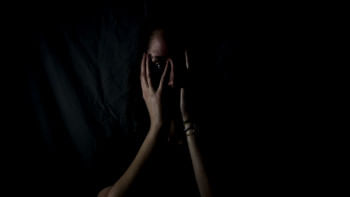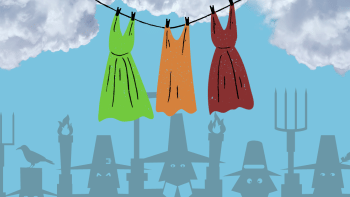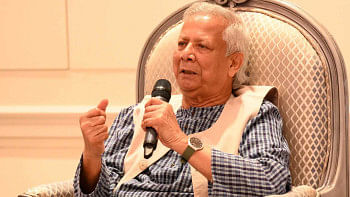The Narsingdi incident was a hate crime against a woman, plain and simple

If you want to show the contradictions in our society, here is an example to cite. Wasfia Nazreen comes back home, after scaling K2, the world's second highest mountain – the first Bangladeshi to achieve such a feat. The news makes headlines in all the major media outlets and her well-wishers and fans are filled with pride that this fearless young woman has, once again, put Bangladesh on the world map. On the same day, social media is abuzz with outraged posts regarding a comment made by a High Court judge in the case of a young woman being assaulted at a train station in Narsingdi. "The girl was in an objectionable state at the platform which is seen in the CD (containing footage of the incident). Is it your right? Is it your right to dress?" The High Court questioned the choice of attire by the young woman at the station located in such an area.
The judiciary is considered the most respected and honoured institution of a country. It is where people seek justice for all the wrongs that the state and society have failed to protect them from. Given its exalted position, such a comment or observation is unexpected and disappointing, to say the least.
The incident took place on May 18. The university student in question was waiting for a train on the platform of the train station with her friends. The accused, Marzia Akhter, a middle-aged woman (who has now been given anticipatory bail), demanded to know why the female student had worn such "indecent" clothes. Marzia then called other people to the scene, hurling abuses at the young woman and her friends and then started assaulting her, trying to pull her clothes off. The video of the incident that went viral shows the viciousness with which the older woman and her cohorts were terrorising the young woman. One shudders at the thought of what would have happened if she had not found shelter inside the train station's office and if the station officials had not protected her.

This was a hate crime that took the form of sexual harassment. A railway official filed a case under the Women and Children Repression Prevention Act and we hope that the law will take its course and punish the attackers.
But the court's comment has elicited strong objections from many, including women's rights groups, for going against women's equal rights, against their constitutional rights as well as against the government's policies to empower women. Article 32 of the constitution guarantees citizens the right to life and liberty and Article 36 guarantees freedom of movement.
How is it that we live in a society where a woman must endure humiliating attacks from another woman and her male cohorts in a public place for the clothes she chooses to wear? How is such an assault almost justified by the most respected of institutions echoing the rationale of the assaulters? Does this mean it is okay to verbally and physically abuse a woman if she does not conform to the dress code of particular groups? Does it exempt the state from ensuring her protection in a public place?
We cannot deny that our society is changing in many ways. While there are more people with mobile phones than ever before, and most of them highly active on social media, technological progress has not come hand in hand with a sense of justice and respect for women that is expected of a civilised society. In fact, it is leaning heavily towards regressive ideologies, opening the floodgates of moral policing, its favourite target being, of course, women. So when a woman wears clothes that are deemed "provocative" or "immodest," getting attacked, being groped or even raped is only to be expected. The fact that she is a citizen of a free and independent country and has equal rights according to her country's constitution, rights that the state is mandated to protect, all this seems to evaporate in the domination of sanctimonious proclamations of the moral police.
Instead of chastising and punishing the older woman who took part in the assault and instigated others to join in, society seems to condone her violence and even applaud her for it as a defender of "propriety." Instead of calling out the men who shamelessly ogle and make obscene comments when they see a woman/girl pass by, instead of punishing those (men and unfortunately, some women) who have the audacity to assault a woman even in a public place, society at large is busy placing the onus of security solely on the woman's adherence to certain dress codes it considers "proper" or "decent," which, by the way, does not guarantee safety. And when the most eminent seats of power make comments that seem to endorse this perception, it can encourage others to become such self-appointed defenders of virtue who may feel obliged to "teach the woman a lesson." Surely, that is a contradiction of the very concept of justice.
Aasha Mehreen Amin is joint editor at The Daily Star.

 For all latest news, follow The Daily Star's Google News channel.
For all latest news, follow The Daily Star's Google News channel. 







Comments